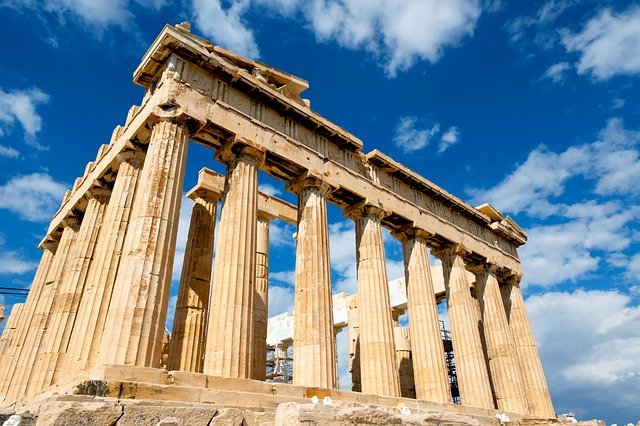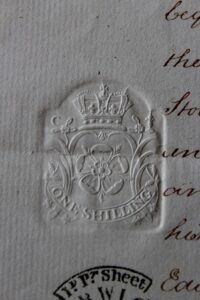עבור פרטים נוספים אודות ההיסטוריה של הקעקועים העבריים מומלץ לבדוק כאן: your-hebrewtattooing.com
This blog post delves into the intriguing history of Hebrew tattoos, exploring their origin, significance, and cultural implications. It discusses the evolution of Hebrew tattoos, the influence of Judaism and its religious restrictions on body marking, and their contemporary popularity.
The Origins of Hebrew Tattoos: How Did They Begin?
Hebrew tattoos have a rich history that dates back centuries. The practice of using Hebrew script as a form of body art can be traced back to ancient times. Hebrew, being the language of the Jewish people, holds deep religious and cultural significance. It is believed that Hebrew tattoos first emerged among Jewish communities as a way to express one's faith and connection to their heritage.
The art of tattooing itself has a long history in various cultures, and Hebrew tattoos became a unique manifestation of this art form within the Jewish community. The precise origins of Hebrew tattoos are difficult to pinpoint, but it is likely that they gained popularity during periods of Jewish migration and diaspora, when individuals sought to preserve their cultural identity in new lands.
Hebrew tattoos were initially popular among Jewish scholars and religious figures, who would often adorn themselves with scriptural verses or meaningful phrases from the Torah. These tattoos served as a constant reminder of their faith and acted as a visible symbol of their devotion. Over time, Hebrew tattoos began to gain wider acceptance and appeal among Jewish individuals from different walks of life, as well as non-Jewish individuals who appreciated the beauty and symbolism of the Hebrew language.
The Influence of Religion: Was it a Taboo?
Throughout history, the use of tattoos has been intertwined with religious beliefs and practices. In the case of Hebrew tattoos, their connection to Judaism adds an extra layer of significance. However, the acceptance and perception of Hebrew tattoos within religious communities have varied over time.
- 1. Historical Taboos:
In certain periods, religious authorities frowned upon the practice of tattooing within Jewish communities. The Leviticus 19:28 verse, which prohibits the marking of the body, was often cited as a justification for considering tattoos as taboo. This interpretation led to a negative view of Hebrew tattoos as a violation of religious law. - 2. Changing Attitudes:
Over the years, attitudes towards Hebrew tattoos have evolved. Many religious leaders now emphasize the intention and meaning behind the tattoo rather than the act itself. Some argue that Hebrew tattoos can serve as a positive expression of faith and cultural identity, as long as they are done respectfully and with a deep understanding of the religious context. - 3. Personal Interpretations:
Individuals who choose to get Hebrew tattoos often have their own personal understanding of their faith and how it aligns with the tattoo. Some may see it as a way to honor their ancestors and carry on their traditions, while others consider it a form of spiritual protection or a visible reminder of their connection to God. These personal interpretations can shape the perception and acceptance of Hebrew tattoos within religious communities.
"Is it a Personal Expression or a Cultural Heritage?" – The Dual Role of Hebrew Tattoos in Modern Society
In modern society, Hebrew tattoos serve a dual role as both a personal expression and a reflection of cultural heritage. On one hand, individuals choose to get Hebrew tattoos as a way to express their personal beliefs, values, and experiences. These tattoos can hold deep personal significance, representing milestones, aspirations, or spiritual connections. Hebrew tattoos allow individuals to outwardly display their connection to Judaism and their personal interpretation of its teachings.
On the other hand, Hebrew tattoos also carry a broader cultural significance. They serve as a visible symbol of Jewish identity and heritage, representing a connection to a rich history and tradition. For many individuals, getting a Hebrew tattoo is a way to honor their cultural roots and affirm their sense of belonging to the Jewish community. These tattoos can also act as a conversation starter, allowing for meaningful discussions about Jewish culture, history, and values.
However, the dual role of Hebrew tattoos in modern society is not without its challenges. Some argue that the commercialization and appropriation of Hebrew tattoos by non-Jewish individuals can dilute their cultural and religious significance. It raises questions about whether Hebrew tattoos are being commodified and stripped of their true meaning. Additionally, the use of Hebrew script without a deep understanding of the language and its nuances can lead to mistranslations or misinterpretations, further complicating the issue.
"What does the future hold for Hebrew tattoos?" – The Continual Evolution and Popularity
With the ever-evolving nature of tattoo culture and the increasing popularity of Hebrew tattoos, the future holds several possibilities for their continued growth and adaptation.
- 1. Cultural Fusion and Innovation:
As societies become more interconnected and diverse, the future of Hebrew tattoos may see a fusion of cultural influences. People from different backgrounds might incorporate Hebrew script into their tattoo designs, blending it with symbols, motifs, or languages from their own heritage. This cultural fusion can create unique and personalized tattoos that reflect a broader sense of identity and promote inclusivity. - 2. Embracing Modern Technology:
Advancements in technology have already made tattooing safer and more precise. In the future, we may see the integration of technology like augmented reality or bioluminescent ink into Hebrew tattoos. Augmented reality could enhance the visual experience of Hebrew tattoos by overlaying digital elements, while bioluminescent ink could add an extra dimension of luminosity and vibrancy to the designs. - 3. Evolving Interpretations and Meanings:
Hebrew tattoos have traditionally been associated with religious or cultural symbolism. However, as personal expression becomes more prominent, the meanings and interpretations behind Hebrew tattoos may continue to evolve. Individuals may choose Hebrew script simply for its aesthetic beauty or to represent personal mantras, quotes, or affirmations. This shift in interpretation could result in a broader range of Hebrew tattoo designs and a deeper exploration of the individual's connection to the language and culture.
Hebrew tattoos have a complex history that intertwines with cultural, religious, and societal shifts. Despite the religious prohibition, they have found a place in modern society, symbolizing a unique blend of personal expression, religious devotion, and cultural heritage. The future of Hebrew tattoos remains vibrant as they continue to evolve in meaning and form.
כתבת החדשות של בי 04 – פורטל החדשות של הצפון,
הדעות בכתבות אינן מהוות המלצה ואין לפעול על פיהן ללא התייעצות עם מומחה





